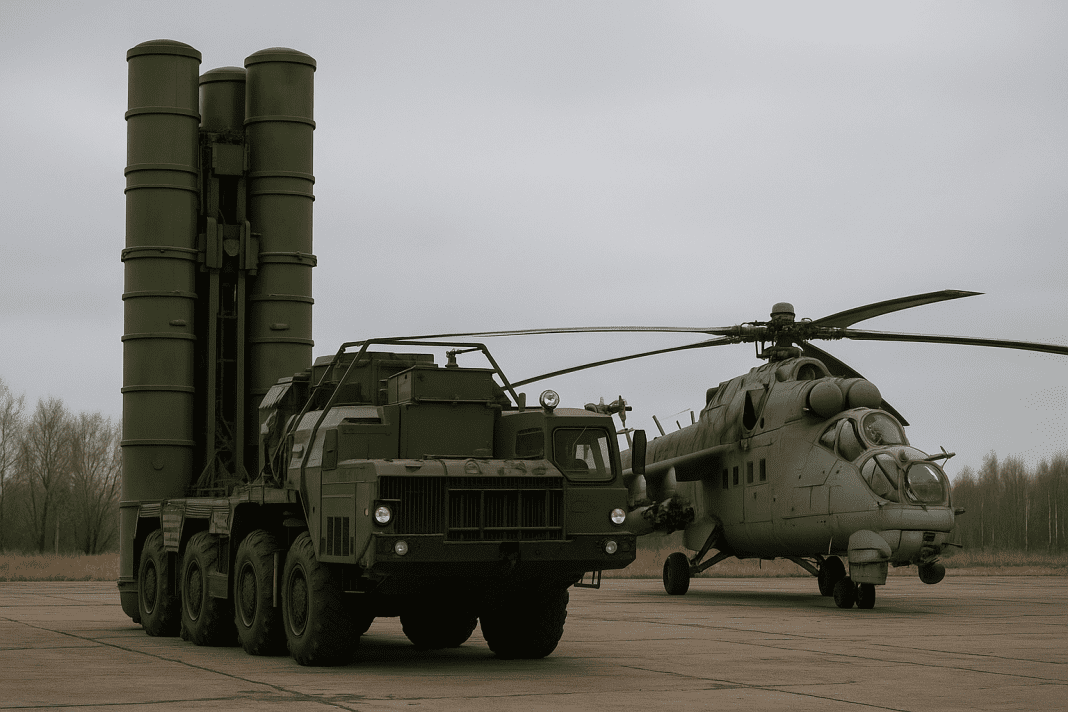In a dramatic counter-intelligence operation, Russian security agencies have reportedly dismantled a ISI spy ring linked to Pakistan’s Inter-Services Intelligence (ISI). The group was allegedly involved in stealing classified Russian military technology, including sensitive details about the country’s powerful S-400 air defense systems.
Russian Authorities Foil Major ISI Spy Ring
Investigators carried out the operation in the city of St. Petersburg and arrested a Russian national who worked under ISI’s guidance. According to early reports, the arrested individual gathered secret data from defense-related sources and tried to transfer it to ISI operatives abroad.
The S-400 Triumf system ranks among the world’s most advanced air defense weapons. It can detect and destroy multiple targets — including fighter jets, drones, and missiles — at long range. The system forms a key part of Russia’s defense strength, and India has also purchased it to protect its airspace.
Officials revealed that the ISI spy ring had focused on obtaining design blueprints, electronic systems data, and performance specifications of the S-400, along with technical documents for advanced Russian helicopters like the Mi-series and the Terminator assault helicopter. These systems are vital components of modern air combat and defense operations, making the leaked data extremely valuable.
ISI Spy Ring Sought to Steal S-400 Secrets
Security experts believe the ISI spy ring aimed to bridge Pakistan’s defense technology gap by stealing Russian military secrets. The operation targeted the advanced S-400 air defense system, with the goal of enhancing Pakistan’s weapons development — possibly with external support.
The most alarming consequence is the threat to regional security. India, a key Russian defense partner using the same S-400 system, could have seen its air defense compromised if sensitive data had leaked. Analysts warn that such stolen information could help develop replicas or countermeasures, reducing the S-400’s effectiveness and undermining both Russian and Indian defenses.
The case underscores how modern espionage now focuses on technology theft rather than battlefield combat. Nations increasingly rely on spies, hackers, and insiders to steal weapon designs, saving years of research and massive costs.
For Russia, the ISI spy ring bust exposes serious security gaps in protecting critical defense data. With systems like the S-400 and advanced helicopters becoming top targets, Moscow is expected to strengthen internal safeguards and tighten access to classified military information.
Diplomatic Fallout and Expanding Spy Networks
The bust has sent shockwaves through diplomatic circles, further threatening to strain relations between Russia and Pakistan. Although both countries have made efforts in recent years to strengthen ties, this revelation has now cast a shadow over that progress. Moscow views the case as a serious breach of trust, involving direct attempts by the ISI spy ring to steal classified Russian defense secrets.
Pakistan’s intelligence service, the ISI, regularly conducts covert global operations to gather strategic defense and nuclear information. However, this latest case shows that the ISI spy ring has expanded its reach into Europe, marking a bold shift in its espionage network.
Meanwhile, the exposure of the ISI spy ring follows several high-profile espionage cases in South Asia. In India, authorities have arrested multiple individuals for leaking sensitive military information to Pakistani handlers, often using social media or deceptive personal relationships.
Financial spy tool yanked from ICE after agents used it to hunt immigrants
Furthermore, experts say the incident highlights how intelligence agencies are increasingly using technology-driven espionage, combining traditional spy methods with digital tools. Stolen data now easily crosses borders within seconds, making it difficult for investigators to track and counter such operations.
Currently, Russian investigators are still uncovering how deeply the ISI spy ring operated and whether it transferred any classified data. Authorities are examining digital and financial links and may soon make more arrests as the probe expands.
Ultimately, Russia’s counter-operation against the ISI spy ring stands out as one of the most significant intelligence victories in recent years, revealing how the global race for military technology is rapidly intensifying in the shadows.

